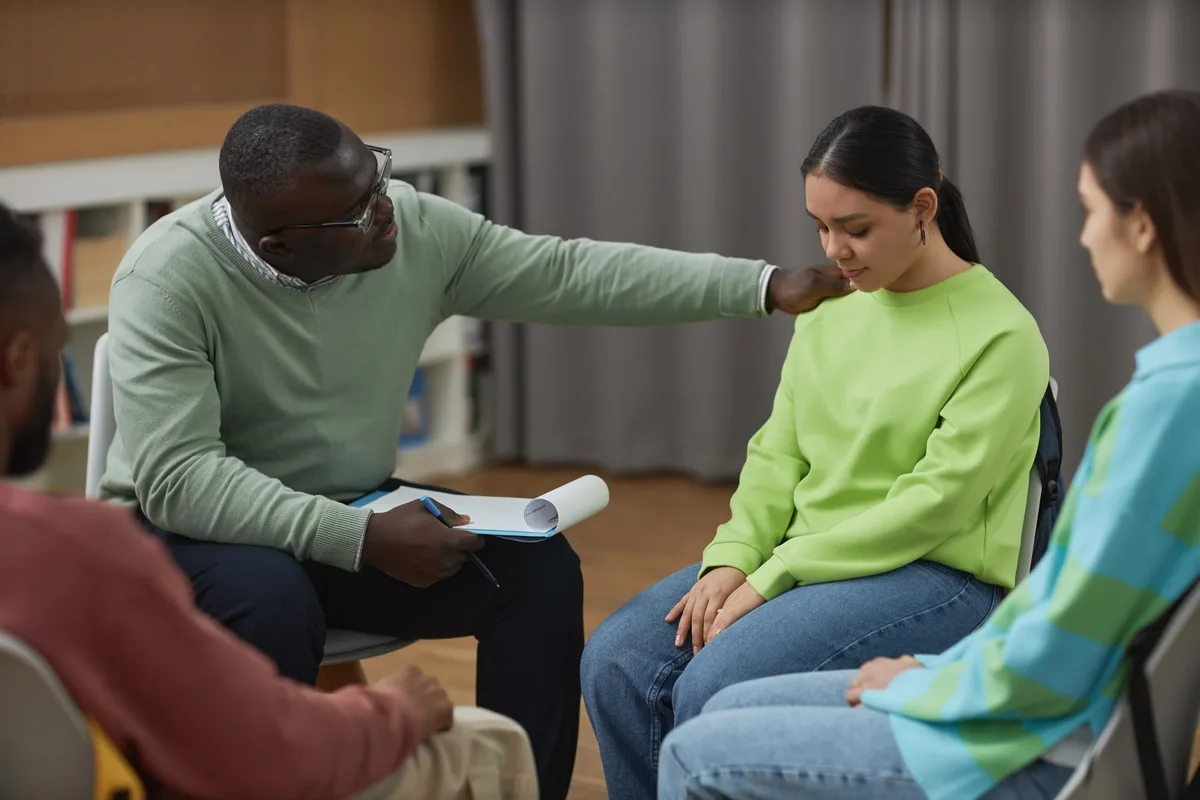24/7 Helpline:
(866) 899-221924/7 Helpline:
(866) 899-2219
Learn more about Group Therapy centers in Pitt County

Other Insurance Options

MHNNet Behavioral Health

UMR

Health Net

Regence

Covered California

GEHA

Horizon Healthcare Service

United Health Care

MVP Healthcare

BHS | Behavioral Health Systems

Excellus

Meritain

ComPsych

Coventry Health Care

CareFirst

Oxford

Carleon

Self-pay options

Evernorth

Magellan Health

WeCare Residential Facility
WeCare Residential Facility is a residential treatment facility for children with mental health issu...



































































































































































































































































